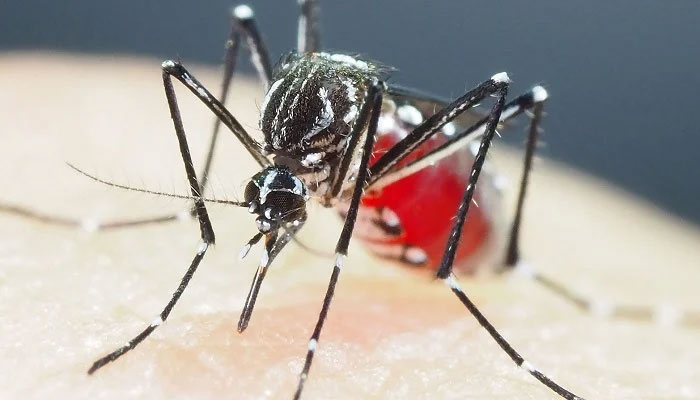Pakistan to train African nations on mosquito identification
Directorate of Malaria Control, Ministry of National Health Services has been selected for exchange programme
March 25, 2024

ISLAMABAD: In view of its wealth of data and expertise, Pakistan has been selected to lead the International Exchange Programme Anopheles stephensi Africa — South Asia familiarisation Programme.
The Directorate of Malaria Control (DoMC), Ministry of National Health Services has been selected for the exchange programme under which it will host a training and capacity building programme of nine African countries for Anopheles stephensi surveillance and control, a senior DoMC official said.
He said, “As you know that historically south-Asia and parts of the Middle East, has been endemic to Anopheles stephensi an efficient vector of malaria that has gained notoriety because of its spread to number of African countries since 2013, particularly in Djibouti, Nigeria, Kenya, Somalia and Sudan.”
He added that the biggest threat posed by this range expansion was that this mosquito was able to flourish in urban environments, thus representing a paradigm shift in malaria epidemiology from being a primarily rural disease in Africa to potentially also infecting millions of city dwellers across Africa.
However, based on decades of experience in surveillance and control of this mosquito, both India and Pakistan were asked to share their experience with malaria control colleagues in Africa offers major benefit for control programmes in Africa to rapidly improve preparedness and response activities.
“Pakistan also has highly advanced control practices, research capacity and also operational research infrastructural facilities. A number of selected high-level influential and decision-making candidates from affected African countries will visit Pakistan to learn from vast experience of Pakistan and fostering of partnerships to collaborate in research, surveillance and control for mutual benefit,” the DoMC official said.
He underlined that this visit would be an initial pilot event as a foundation to build on future exchanges with expanded objectives and outputs, but critical to set an example and initiate partnerships, importantly also to demonstrate successful outputs and outcomes that can serve as incentive for funding partners to support future initiatives for multi-country efforts to curb the Anopheles stephensi threat.
However, the Directorate of Malaria Control (DoMC) and Department of Entomology Arid University (at National Entomological Reference Laboratory) was also going to hold a week long international training course for Molecular Mosquito Identification through PCR in May, 2024.
The official mentioned that the Directorate had received very impressive CVs from young and energetic entomologists from the country. However, it was only needed to enhance their capacity and involvement in vector surveillance and control.
“We are at the final stage of finalisation of four most suitable candidates from the participants. Since there is very neck-to-neck competition among them, therefore we are also trying to increase 2-3 more candidates from Pakistan through local funding sources. Inshallah the selected ones will be the pioneers who will receive this International training in Pakistan and will also be most suitable candidates for more advance course abroad in near future,” he added.
He added that the aspiring candidates have been advised that since the programme would run through PCR and DNA extraction of different species of mosquitoes and would preserve them as representative samples from Pakistan, therefore the Directorate needed a very strong commitment from them for collection and sending samples of mosquitoes from their selected areas.
The candidates have been urged to start their assignment for collection and sending mosquitoes from their areas (regardless the identification), he said, adding, “During course they will be trained for identification (both morphologically and through PCR). Just due to this commitment we need those committed and energetic candidates who are and will continue their work in vector control and surveillance their department”.











